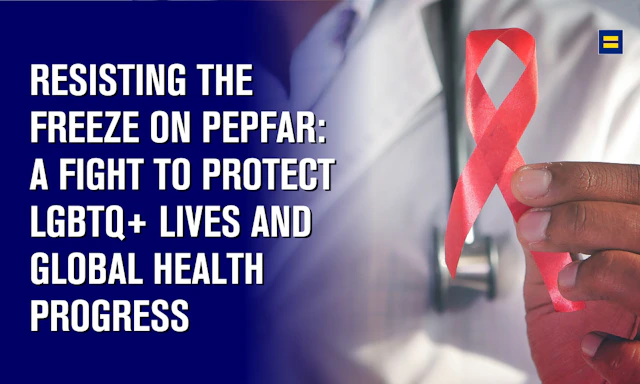
Cookies in use
#BeInTheKnow: National Women & Girls HIV & AIDS Awareness Day 2017
by HRC Staff •
Today marks National Women & Girls HIV & AIDS Awareness Day, an opportunity to focus our attention on the impact of HIV and AIDS on women and girls in the United States.
Post submitted by Noël Gordon, former HRC Senior Program Specialist for HIV Prevention and Health Equity.
Today marks National Women & Girls HIV & AIDS Awareness Day, an opportunity to focus our attention on the impact of HIV and AIDS on women and girls in the United States.
This year, we encourage readers to check out our interview with Beverley and Vanetta of the Initiative for Multipurpose Prevention Technologies to learn more about the importance of giving women and girls everywhere the tools to meet their sexual and reproductive health needs. As Beverley and Vanette made clear in our interview with them a few weeks ago, “Advocacy is key…With over two dozen products in the various stages of clinical development, we firmly believe in the promise of multipurpose prevention technologies to improve the lives of women, girls, and families around the world.”
Fast Facts from the Centers for Disease Control and Prevention:
- Approximately 25 percent of all people living with HIV in the U.S. are women. Most women in the U.S. contract HIV through heterosexual sexual contact.
- From 2010 through 2014, annual HIV diagnoses decreased 20 percent among all women, driven by a decline of 24 percent among African American women.
- Despite recent progress, transgender women and women of color remain disproportionately impacted by both HIV and AIDS.
Prevention Challenges:
- Relationship Dynamics - Women with male or masculine-presenting partners may not always be in a position to negotiate safer sex practices out of ignorance or fear of abuse.
- Sexually Transmitted Infections (STIs) - Cisgender women are more severely impacted by STIs than cisgender men, which results in an increased risk for contracting HIV.
- High Prevalence - Given the large number of African American and Latinx people living with HIV in general, and the fact that people tend to have sex with partners of the same race or ethnicity, African American and Latino women are more likely to encounter HIV when choosing a sexual partner.
Ways to Learn More and Get Involved:
- Get tested for HIV and other STIs. Get treated as soon as possible in order to stay healthy.
- Take steps to protect yourself and your loves ones from the spread of HIV and other STIs.
- Seek out information from the CDC, Positive Women’s Network, Center of Excellence for Transgender Health, and other organizations working on this issue.
- Listen to and share the stories of women living with HIV.
HRC is committed to working with our allies, partners, members, and supporters to end the dual epidemics of HIV and HIV-related stigma. Click here to learn more, and join the conversation on social media using the hashtags #BeInTheKnow and #NWGHAAD.
- Topics:
- HIV & AIDS
- Health & Aging
Love conquers hate.


